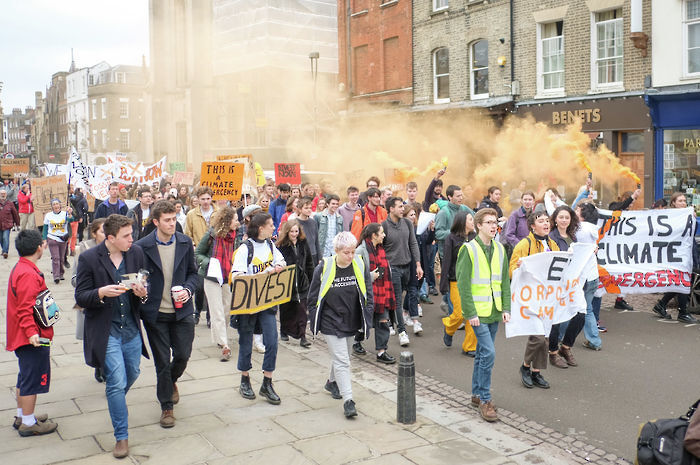BP executive urges Cambridge against fossil fuel divestment
CEO Bob Dudley criticised the divestment campaign as the product of a “simplified idea” that “climate change will be solved by renewables”

BP’s group chief executive Bob Dudley faced sharp backlash today after recommending that the University of Cambridge resist calls that it divest entirely from its indirect investments in fossil fuel holdings.
Speaking at an industry summit for international energy negotiators, Dudley said: “We donate and do lots of research at Cambridge so I hope they come to their senses on this”, a comment which was met with laughter.
Dudley criticised divestment efforts “coming out of the US, the east coast and west coast, and New York” as “generally the simplified idea that we turn everything into renewables – that climate change will be solved by renewables.” He continued, “when you dig into it and look into the numbers, of course, it can’t work. You’ve got to get more sophisticated about it.”
Cambridge Zero Carbon Society criticised Dudley’s remarks as “just another sign of an industry desperately clinging on to power, knowing its only chance for survival is to subvert democracy at universities like Cambridge and leech off their reputation.”
The question of whether the University will divest has reached a crossroads, as the final report by the University’s Divestment Working Group was presented to the University Council yesterday.
In a comment to Varsity, Zero Carbon framed divestment as an issue of academic independence, where the University’s decision would either fall in line with “the democratic will of its staff and students” or would “cave in to private interest”.
BP provided a £22 million endowment in 2000 to establish the University of Cambridge BP Institute, a research centre whose work spans six University Departments. BP also gave the University additional grants worth £1.4 million in 2016/17.
The issue of research funding by organisations such as BP is distinct, however, from the campaign for divestment of the University’s endowment from fossil fuel shareholdings.
The Divestment Working Group report marks the end to over a year-long process that staff and student representatives determine the University’s investment trajectory of partial or full divestment. The full report and the Council’s decision are expected to be published in late May.
Zero Carbon activists responded to the University Council discussion on Monday by holding a rally outside, where around 40 activists protested at Storey’s Field Centre, in North West Cambridge.
Last Friday, over 300 academics and 1,100 students signed an open letter calling for the University to divest. It cited a Grace approved by Regent House in 2017 that called for full divestment from fossil fuels in the University’s direct and indirect investments, a demand that has so far not been implemented.
The University of Cambridge declined to comment.
 Features / Should I stay or should I go? Cambridge students and alumni reflect on how their memories stay with them15 December 2025
Features / Should I stay or should I go? Cambridge students and alumni reflect on how their memories stay with them15 December 2025 News / Cambridge study finds students learn better with notes than AI13 December 2025
News / Cambridge study finds students learn better with notes than AI13 December 2025 News / Uni Scout and Guide Club affirms trans inclusion 12 December 2025
News / Uni Scout and Guide Club affirms trans inclusion 12 December 2025 Comment / The magic of an eight-week term15 December 2025
Comment / The magic of an eight-week term15 December 2025 News / News In Brief: Michaelmas marriages, monogamous mammals, and messaging manipulation15 December 2025
News / News In Brief: Michaelmas marriages, monogamous mammals, and messaging manipulation15 December 2025









